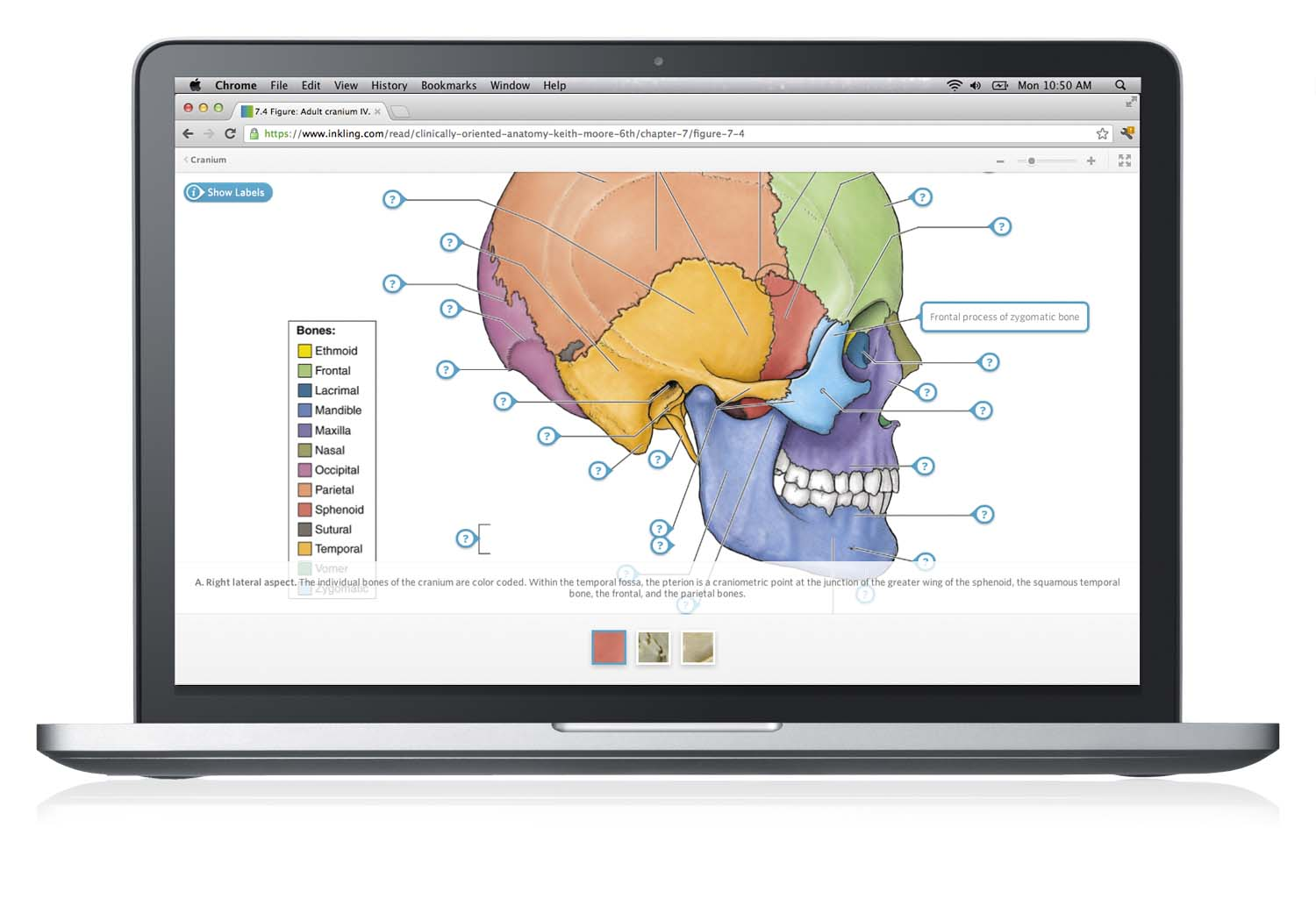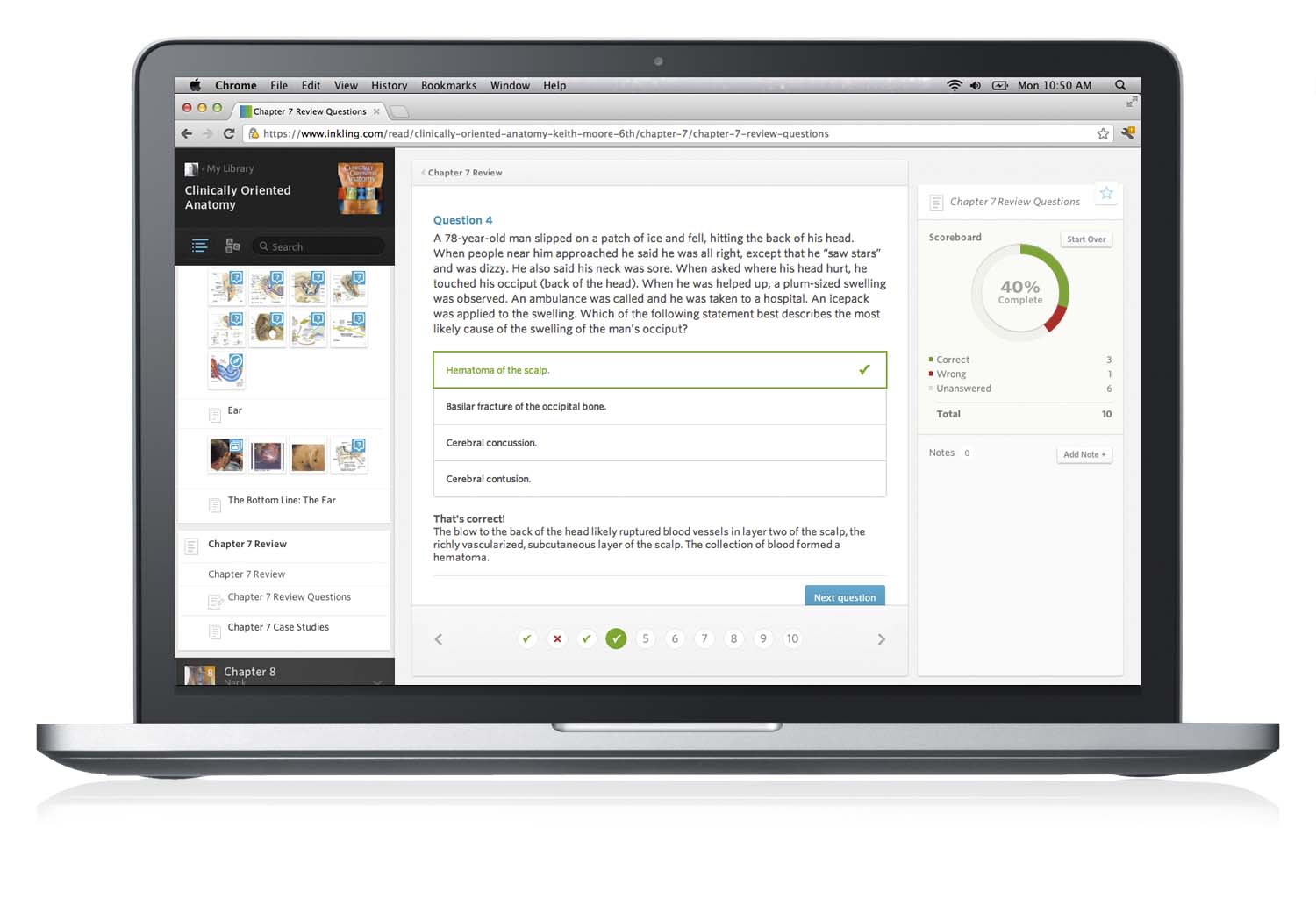Inkling, the San Francisco-based startup that’s known for making super slick interactive digital versions of college textbooks and other educational titles for the iPad, has debuted its first ever platform for the web browser.
‘Inkling for Web’ requires no Flash or other plug-ins, and is powered entirely by technologies such as HTML5, CSS and Javascript, Inkling CEO Matt McInnis said in an interview this week. This means that Inkling titles, which had previously been viewable only through Inkling’s native iPad app, can now be viewed on any up-to-date webkit-based browser such as Chrome or Safari by anyone with an Inkling account.
All current and future Inkling titles are now available through the new web interface — with things such as 3-D graphics, videos and audio features fully included. Every part of each title will have its own unique URL so that instructors can send out links to certain sections. Notes and activity on the web version will automatically sync to Inkling on iOS, and vice versa.
Increasing Its Potential Market By 10X — In A Snap
For Inkling, this is a very big deal. The company, which was founded in 2009, has up until now offered only e-books for the iPad as well as some connected apps for the iPhone. The scope of those platforms is sizable, but the web is still much bigger — the launch of Inkling for Web grows the company’s investable market by 10x, McInnis said.
For Inkling, a web application of some sorts was always in the cards, McInniss tells me, as students have always wanted to access their textbook content on the web in some way or another. But the company only recently realized that it just might be possible to build a web platform that would be just as fully-featured as its native iPad app.
“What was interesting was that when we started to build a prototype, the web app turned out to be way awesomer than we thought it would be… HTML5 has gone in the past 1.5 years from something that was nascent and shaky to something that’s stable, and that was serendipitous,” McInniss said. “It feels nice to stretch our arms outside of iOS ecosystem for the first time.”
Once the team got started, it really didn’t hold back when it came to utilizing HTML5’s newfound stability. According to McInnis, Inkling for Web is “probably the most sophisticated HTML5 software that has ever been written.”
The Open Web: Pros Outweigh The Cons
Now, being out on the web comes with its own possible drawbacks, and Inkling has implemented some security controls to safeguard against pirating — it will detect if someone is copy and pasting large amounts of text in a very short amount of time, for example. But in general, McInnis said, the company and the publishers it deals with are feeling very positive. “The web is open, so we’re being as open as we possibly can,” he said. “Publishers are very excited about the opportunity to package and sell things on the web… and this is a whole new opportunity for them to go out of Apple’s paywall.”
Scaling out to the wider web won’t be cheap, McInnis acknowledged. But according to him, it will all be worth it:
“We’re going to be paying a lot of money to our content delivery network and to Amazon [Web Services]. But the broader business implication is that the future is HTML5, and if you want to build a billion dollar business you can’t really do it under the thumb of another company. This was absolutely critical to us from a strategic standpoint.”
Those new expenses aside, Inkling maintains it is still well-capitalized to keep building itself out independently for the time being. The company, which has taken on $17 million in venture capital to date, has just under 100 employees at the moment, has been “very happy with revenue growth,” and will not need more venture capital at its current run rate until late next year, McInnis said.
Here are some screenshots of Inkling for Web (click on each to enlarge):



